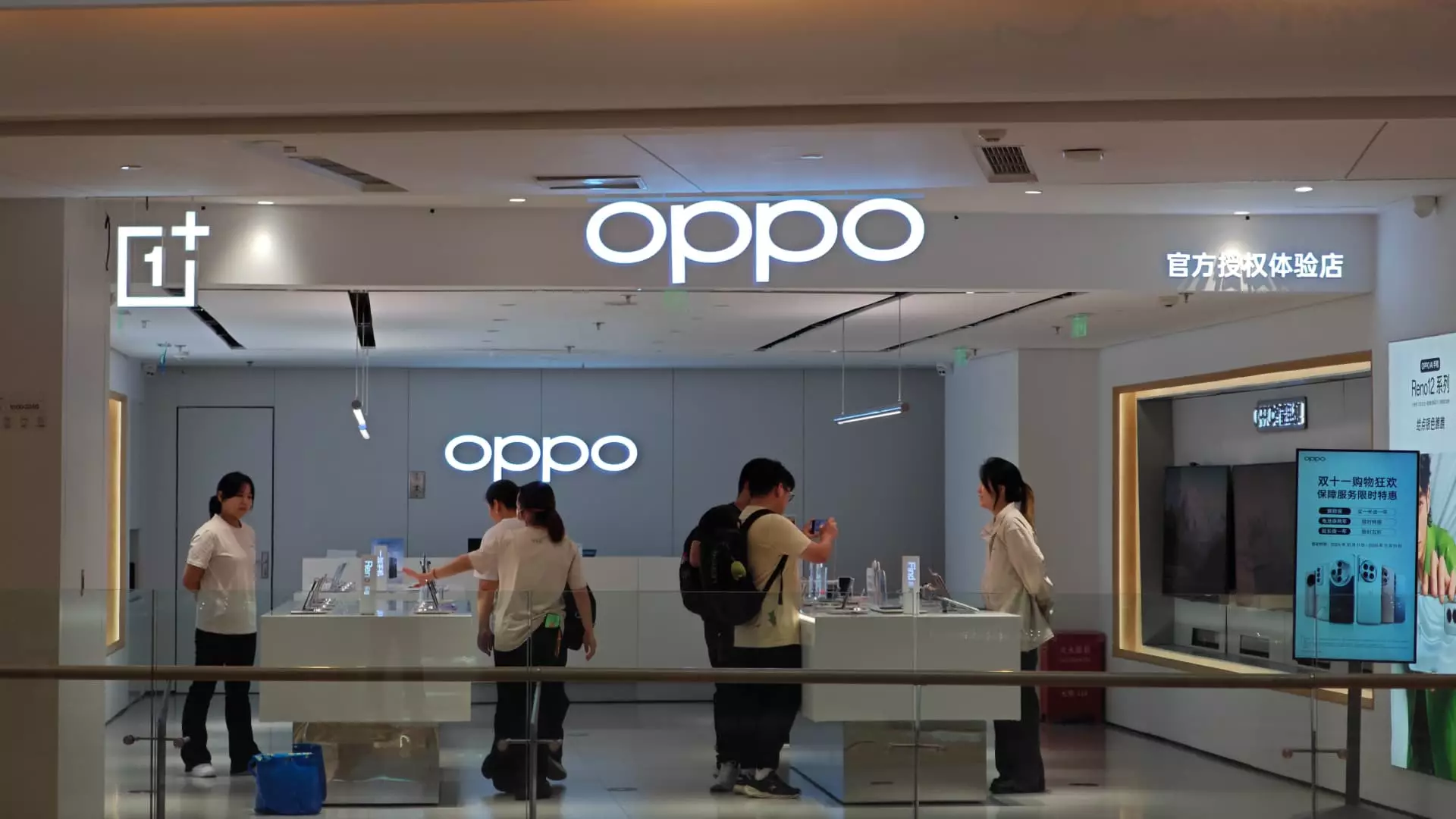In an evolving technological landscape, Chinese smartphone manufacturer Oppo is taking ambitious strides in the realm of artificial intelligence (AI). As a key player in the competitive smartphone market, the company has initiated weekly discussions with senior executives from tech giants Google and Microsoft. This collaboration is part of a broader strategy leading up to the introduction of Oppo’s next flagship device on the global stage.
These conversations are not just another corporate formality. Instead, they signify a concerted effort to identify and tackle user pain points through innovative AI applications. Oppo’s President for Overseas Markets, Billy Zhang, underscored the importance of understanding consumer needs. He indicated that the company aims to utilize AI to effectively address these needs, demonstrating a customer-centric approach in a crowded market.
The urgency of AI integration is further evidenced by the competitive landscape, with major players like Apple and Honeywell also vying to harness the technology’s capabilities. The push for the next wave of generative AI—capable of producing responses that closely mimic human interaction—has generated a sense of urgency among companies looking to stay ahead in this rapidly evolving sector.
Oppo’s focus on expanding its presence beyond its home turf is evident. Currently, approximately 60% of its shipments are directed towards Southeast Asia, Europe, and other international markets. As of the third quarter, Oppo emerged as the fourth-largest smartphone manufacturer globally, commanding a significant 9% share of worldwide shipments. This is a noteworthy achievement, considering the fierce competition from heavyweights like Samsung and Apple, both of which share the top spot in market rankings.
As the U.S. market remains a challenging landscape for foreign companies, particularly due to stringent regulations, Oppo is strategically prioritizing its efforts in Europe rather than the U.S. This strategic choice might allow Oppo to capitalize on growth opportunities in regions less impacted by geopolitical tensions and trade barriers.
Oppo’s upcoming flagship phone, the Find X8 series, is poised to include advanced AI features such as Google’s Gemini for enhanced writing and summarization tasks, alongside Microsoft’s text-to-speech technology. This integration marks an important step in releasing a device that not only meets consumer expectations but also aligns with global technological advancements.
Oppo’s ambitions extend beyond mere collaboration. The company has stated its intention to incorporate generative AI across 50 million devices this year, a bold move that highlights their commitment to innovation. Existing AI functionalities within current smartphone models include photo touch-up features that allow users to enhance their images, demonstrating that Oppo is already capable of leveraging AI tools to improve user experience.
Additionally, the company has developed its proprietary AI models since 2020 and established an AI center earlier this year. Zhang expressed a confident outlook for AI, emphasizing its transformative potential across various sectors and positioning Oppo as a frontrunner in the technological race.
Oppo’s strategic integration of AI is not limited to its product offerings; it is also making significant strides in its manufacturing processes. By automating various operations, Oppo has reportedly enhanced both the quality and efficiency of its production lines. In fact, the company has replaced roughly 8% of its workforce with automation technologies, allowing for a shift towards more complex tasks that require higher skill sets.
This modernization of manufacturing is reflected in remarkable statistics; the company has achieved nearly a 40% reduction in manufacturing costs over three years. Moreover, by digitizing and standardizing production processes, Oppo has successfully decreased the time taken for production cycles from 16 days to a mere six days. This allows for a more responsive production model, minimizing the risks associated with unsold inventory.
The company’s manufacturing advancements are evident as it expands its operations across various countries, including India, Indonesia, and Turkey. The fact that Oppo has adopted a global digital management system indicates a commitment to global scalability and operational efficiency.
The industry implications of Oppo’s aggressive strategy in AI integration signal a transformative shift not only for the company but also for the smartphone industry as a whole. As generative AI concepts continue to evolve, Oppo’s willingness to partner with leading tech firms and focus on consumer applications may position it favorably in the market.
The road ahead for Oppo and similar companies is filled with opportunities for innovation, especially as the world increasingly embraces AI advancements. As industry forecasts predict a surge in generative AI smartphone shipments by 2028, companies like Oppo must continue to harness these technologies effectively to meet consumer demands while ensuring sustainable growth in their global operations. The future of smartphones is undeniably intertwined with AI, and Oppo’s current efforts could be the key to unlocking that potential.

